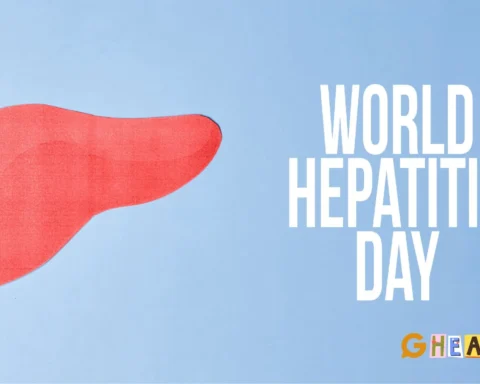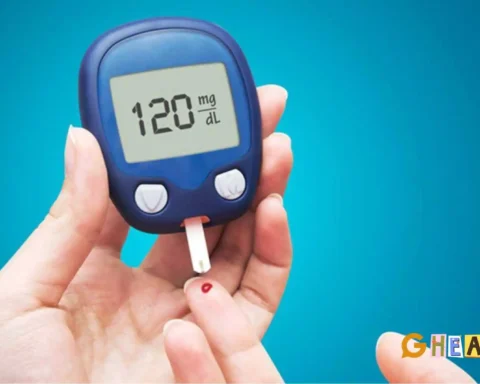Parkinson's disease is a crippling neurodegenerative disorder that impacts the nervous system and parts of the body commanded by nerves.
Millions around the world are in a constant battle with the disease, trying to live with a slow and progressive decline in movement, fighting to maintain their independence.
But what if there was a technique to manage the symptoms rather than to tirelessly battle them every day?
Let's talk about Ayurveda for Parkinson's disease.
Table of Contents
What is Ayurveda?
Ayurveda (which means "the science of life") is a holistic system of medicinal science that originated in India more than 5000 years ago. According to Ayurveda, health is balanced by three fundamental energies called doshas, namely, Vata, Pitta, and Kapha. Vata (space and air) controls movement, pitta (fire and water) handles metabolism, and kapha (earth and water) drives assimilation in the body. These are active energies, continually responding to a person's thoughts, feelings, surroundings and activities.
YOU MIGHT BE INTERESTED IN: Fighting the Stigma around Parkinson’s with Sanjeev Dixit
Parkinson's in the Light of Ayurveda
With the tremors, stiffness, and imbalance that come with Parkinson's disease, Ayurveda for Parkinson’s disease would suggest a condition caused by disturbances of the Vata dosha. Poor digestion, lack of exercise, stress, and an unhealthy diet can all be contributing factors aggravating the Vata dosha.
The aggravation of Vata disrupts the flow of movement within one's body, causing tremors and movement-related disturbances. The elements of air and space which are connected to Vata are also associated with communication, hence the appearance of communication-related issues in Parkinson's. The very essence of Vata - communication and movement- is disrupted in Parkinson's, as per Ayurveda.
Utilising Ayurveda for Parkinson's Disease
Since the core of Parkinson's, as per Ayurveda, lies in the imbalance of the Vata dosha, Ayurvedic treatments for Parkinson's are centred around soothing the Vata dosha, strengthening the nervous system and fostering general well-being. Some effective Ayurvedic therapies for Parkinson's disease are mentioned below:
Lifestyle Changes
Ayurveda for Parkinson’s disease places great emphasis on improving one's lifestyle to nurture one's overall health and well-being. People with Parkinson's disease are highly encouraged to maintain a regular and consistent daily routine (dinacharya) by getting adequate sleep and rest. Gentle exercise is suggested, along with movement therapies. Keeping in mind the many emotional difficulties that come with this debilitating disease, Ayurveda also recommends the cultivation of optimism and emotional resilience.
ALSO READ: Acute Parkinsonism: 5 Early Warning Signs You Shouldn’t Ignore
Dietary Modifications
Adopting a healthy, ayurvedic diet with whole, nourishing, and unprocessed foods that are easy to digest is essential for one's health. An individual with Parkinson's disease would be recommended to warm and ground foods such as soups, stews, vegetables, cooked grains, and herbal teas as per Ayurvedic principles. Moreover, Ayurvedic principles also stress eating complementary food combinations, practising mindful eating and being moderate in one's food intake.
Herbal Antidotes
Ayurvedic herbs have long been used to support neurological health and improve cognitive functioning, both of which are crucial in reducing the symptoms of Parkinson's disease. Some of the most commonly used herbs are Ashwagandha, Guduchi, Shatavari and Brahmi, among others. These herbs have strong antioxidant and anti-inflammatory properties that could assist in slowing the progression of Parkinson's' and enhance one's quality of life.
Panchakarma Therapy
Aiming to eliminate toxins (ama) from the body, Panchakarma treatment detoxifies and rejuvenates the body and restores balance to the doshas. The therapy may comprise oil massages, nasal administration of medicinal oil, dietary improvements, and herbal steam therapies. Panchakarma therapy can be an essential part of reducing Parkinson-related symptoms since it significantly reduces inflammation, boosts circulation, and strengthens nervous system functioning.
Yoga and Meditation
Two very integral elements of Ayurvedic therapy that can be highly beneficial for those suffering from Parkinson's disease are Yoga and Meditation. This is because they are essential for relaxing the body, decreasing stress, and boosting one's mind-body connection. Regular practice of both can improve a person's flexibility, coordination, and balance. This could be invaluable in improving a patient's mobility management.
However, it should be noted that while Ayurveda for Parkinson's offers numerous benefits, it is necessary to understand its purpose completely.
Before embarking on an Ayurvedic journey, a qualified Ayurvedic practitioner must be consulted.
Additionally, expectations from the treatments should be managed; Ayurveda is not it if you're looking for a quick fix. Rather, it is a long-term and holistic approach to significantly enhance one's quality of life by keeping symptoms at bay. Moreover, patience, consistency, and commitment are crucial to have before expecting to see results.
RELATED: How to Live Well with Parkinson's Disease with Vonita Singh
Conclusion
Parkinson's disease is truly a crippling condition; however, it does not have to define one's life. Besides conventional medications, Ayurveda for Parkinson’s disease, with its emphasis on restoring balance within the body, can be employed as a complementary approach to managing Parkinson 's-related symptoms. If you're interested in further exploring Ayurveda for Parkinson's disease for yourself or a loved one, you may discuss it with a healthcare practitioner.
Find a qualified Ayurvedic practitioner and steer yourself on a path toward a potentially brighter and healthier future with Parkinson's disease.
FAQs
Can you live 30 years with Parkinson's?
The life expectancy of those with Parkinson's disease depends on when they have been diagnosed and a range of other factors. Generally, the life expectancy of those who have just begun to show symptoms is approximately 16 years.
What is stage 2 of Parkinson's disease?
Stage 2 of Parkinson's disease is considered to be the 'moderate' stage, with symptoms becoming more clear than the previous stage.
Can you live with Parkinson's without medication?
Parkinson's disease can't be cured with medications. However, medicines can help control the symptoms to a large extent and significantly improve the patient's quality of life.











[…] Parkinson's disease is a progressive neurological disorder that primarily affects movement. It occurs when nerve cells in the brain that produce dopamine, a chemical messenger responsible for coordinating smooth and controlled muscle movements, become impaired or die. The loss of dopamine leads to abnormal brain activity, causing motor symptoms associated with Parkinson's disease. These symptoms include tremors, stiffness, slow movement (bradykinesia), abnormal involuntary movements (dyskinesia), postural instability and difficulties with balance and coordination. In addition to these physical symptoms, Parkinson's can also lead to non-motor symptoms such as anxiety and depression as well as cognitive symptoms such as loss of memory or difficulties in planning or following instructions. […]
[…] which is thought to improve mitochondrial function, which is a major factor in the development of Parkinson's disease. Most importantly, light is a primary factor in controlling the body's circadian rhythms. […]